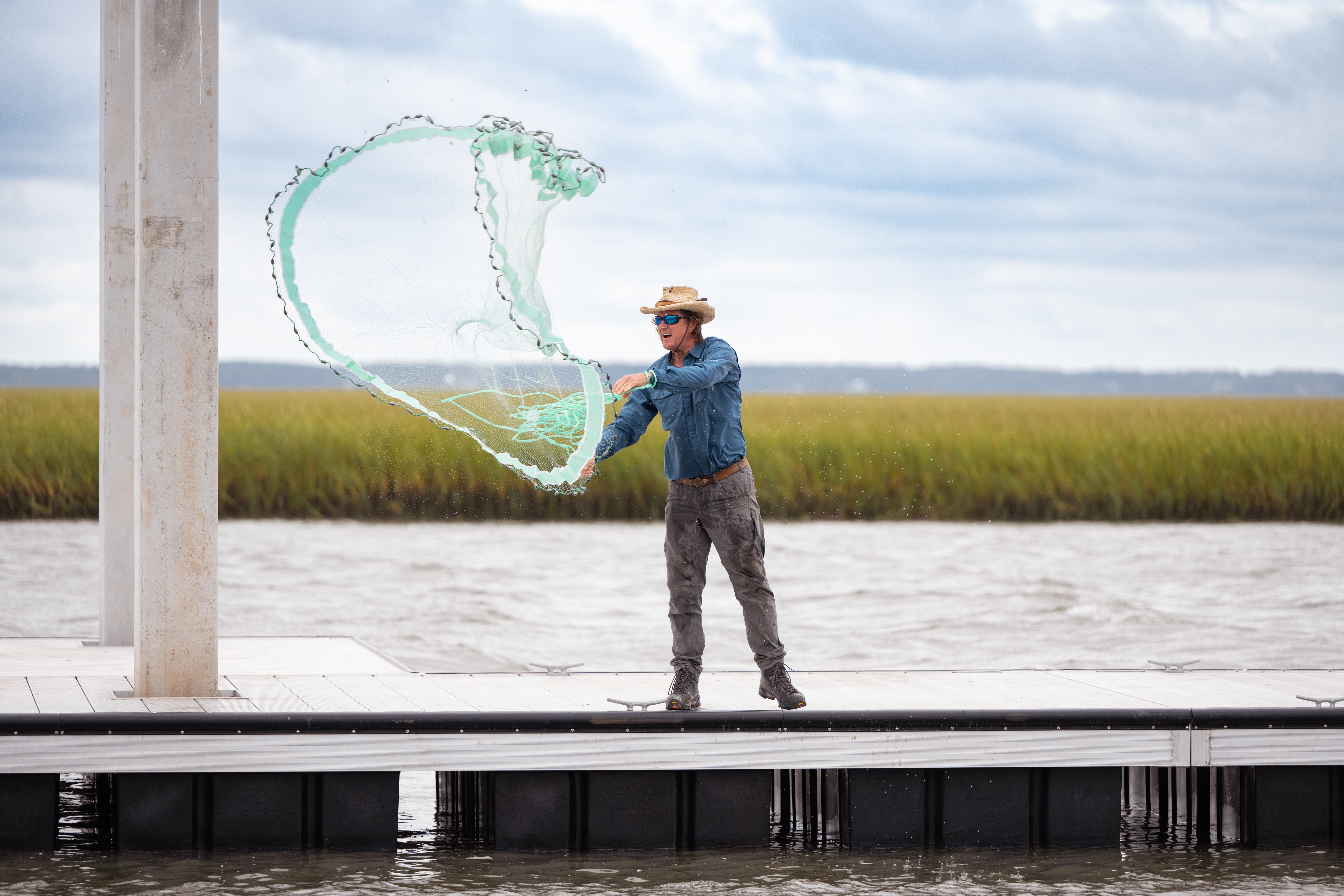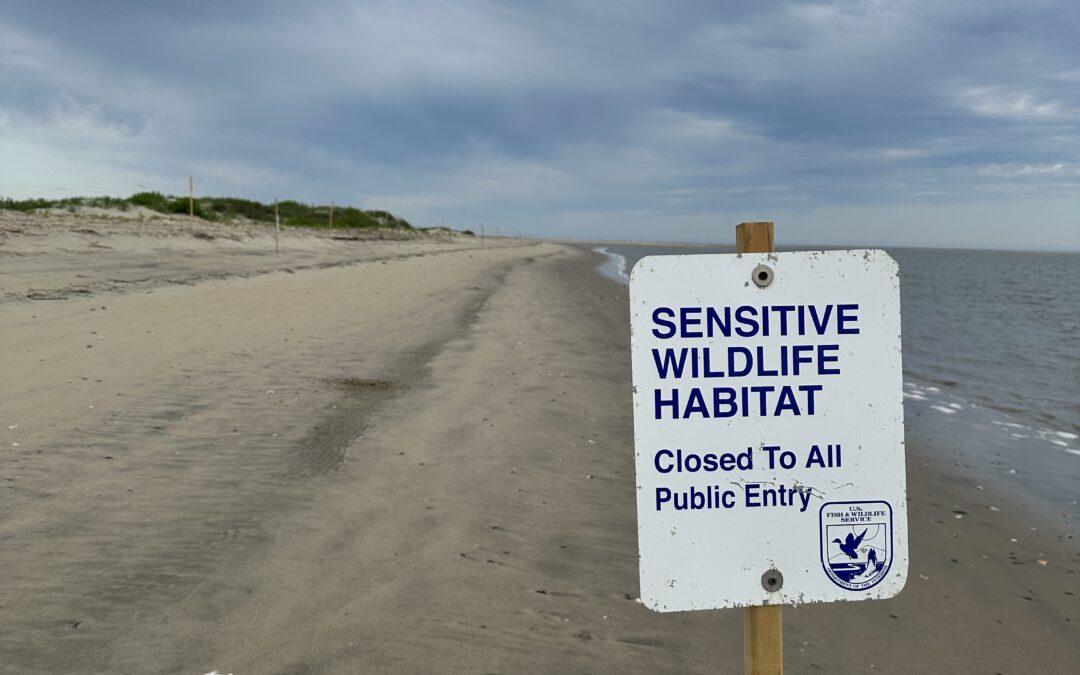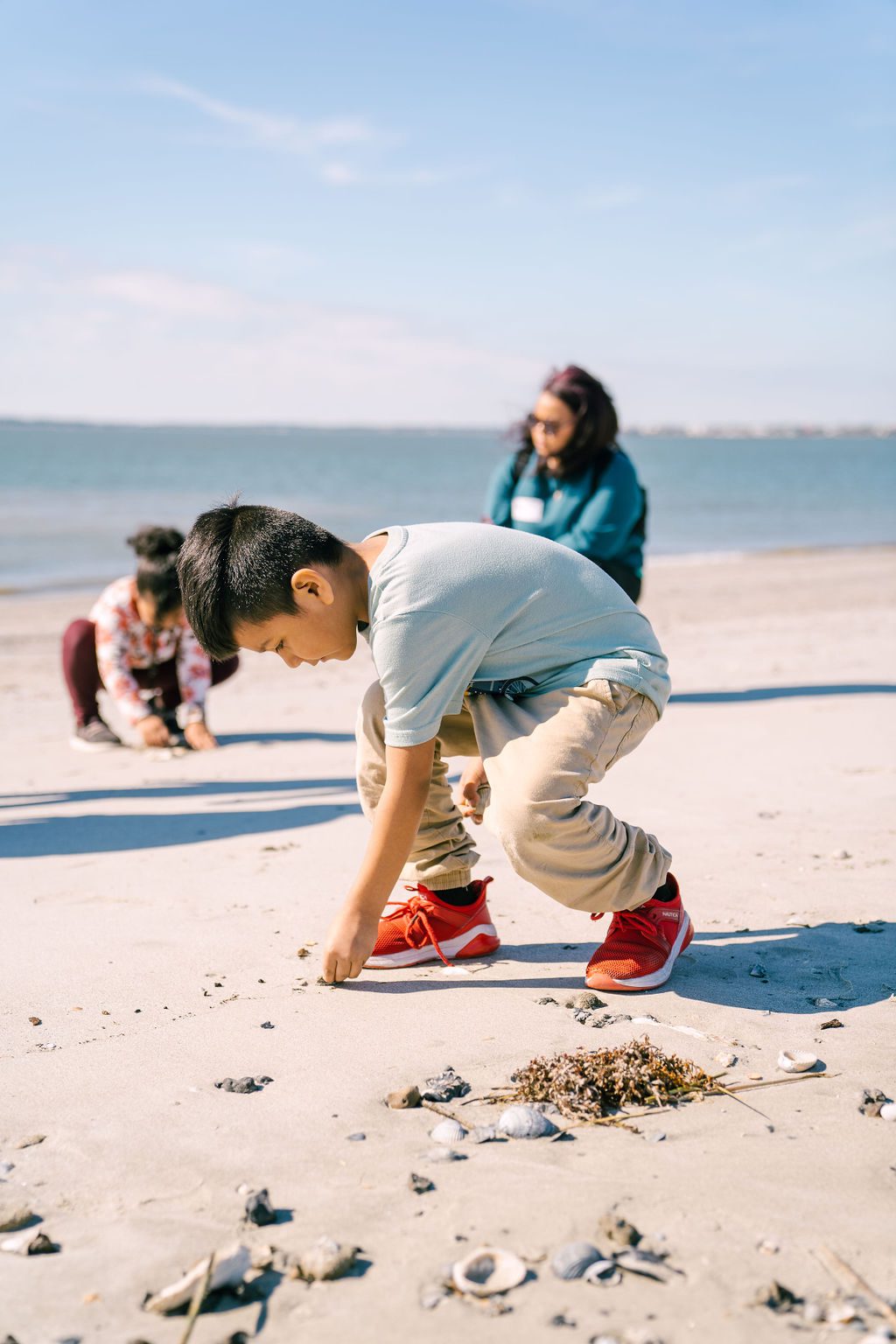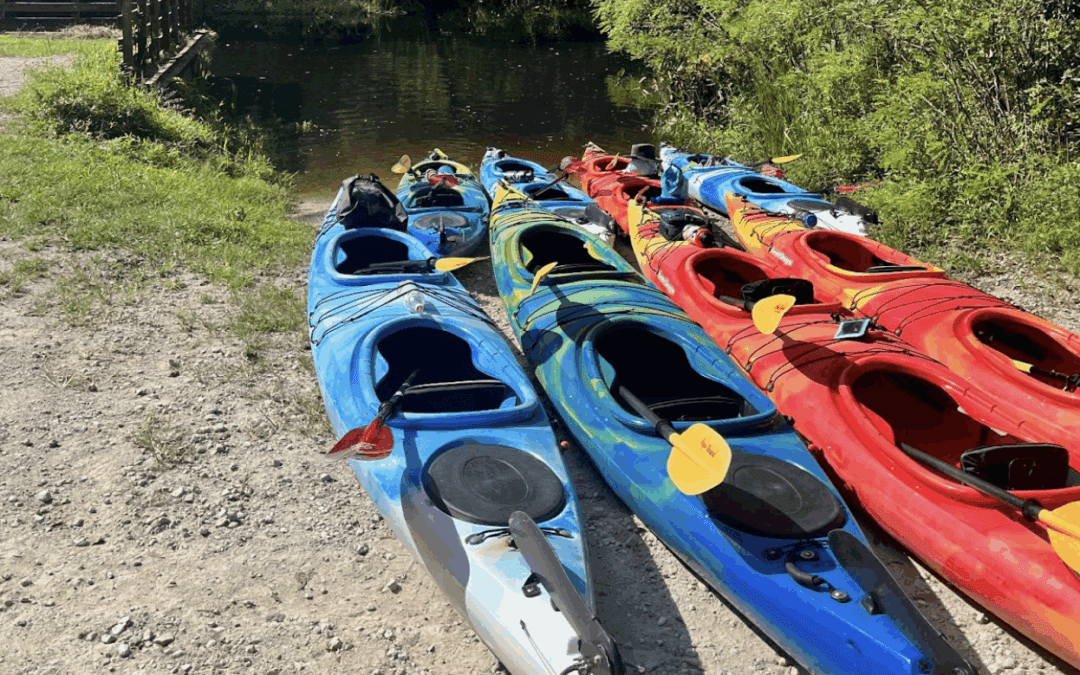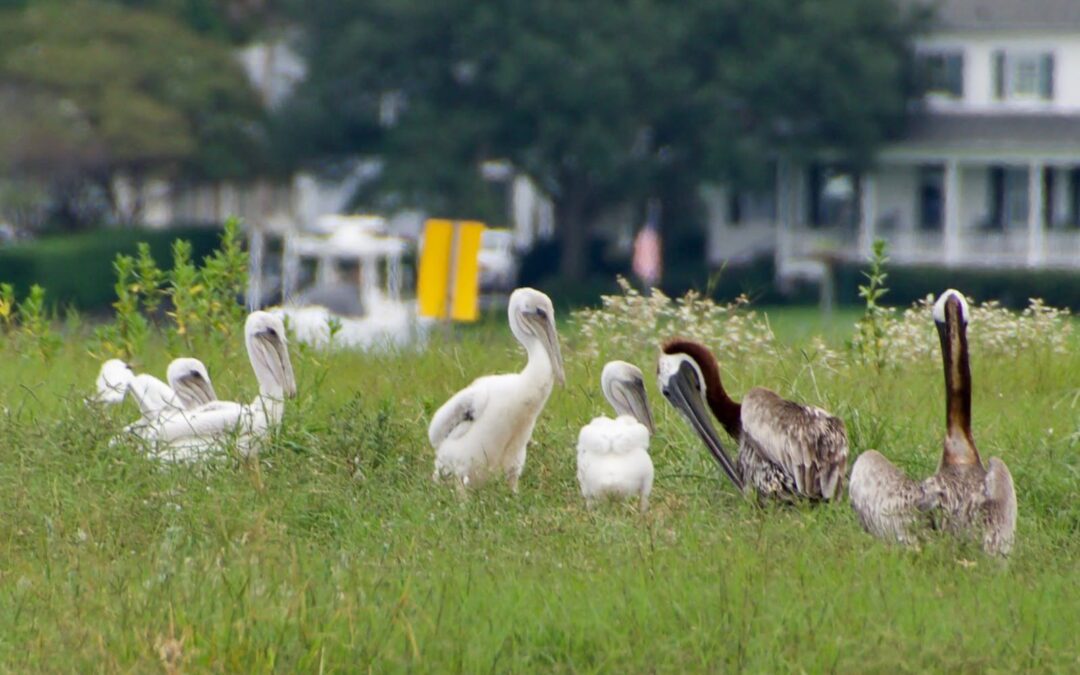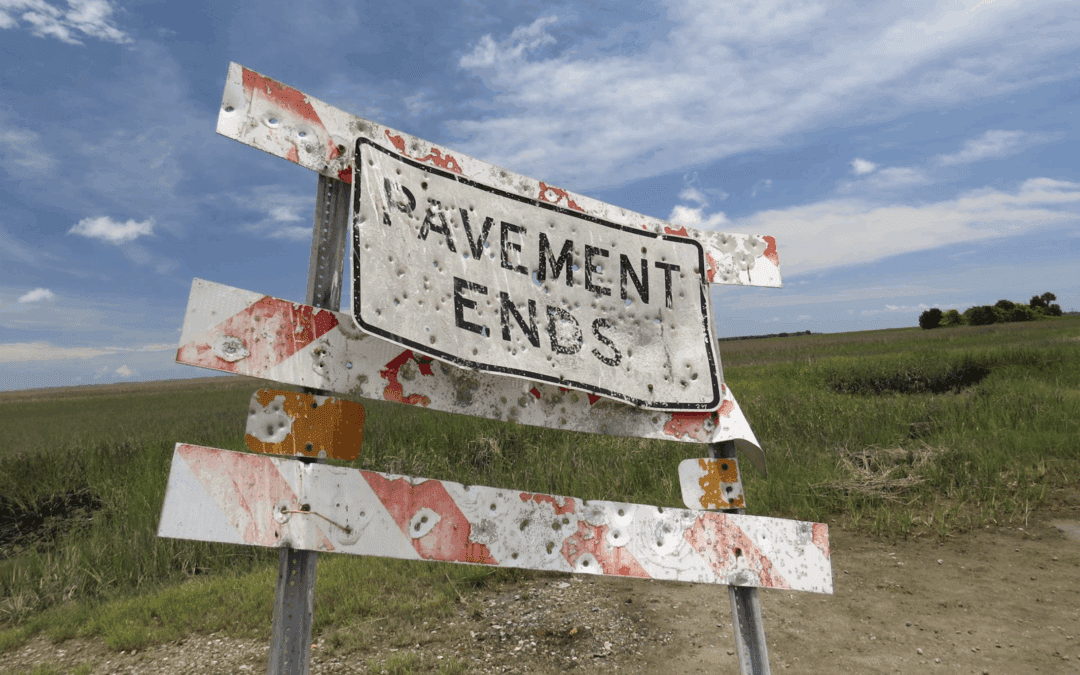GUIDEPOSTS
Protecting Horseshoe Crabs in South Carolina
The South Carolina coast is home to a remarkable and ancient marine creature: the horseshoe crab. These living fossils play a pivotal role in the coastal ecosystem, serving as a crucial food source for migratory shorebirds and contributing to human health through their unique blue blood. Protecting horseshoe crabs is essential not only for maintaining biodiversity but also for supporting the intricate web of life that depends on them.
Since 1992, when Coastal Expeditions began leading tours, we have witnessed an alarming decline in local horseshoe crab populations. This is directly related to harvesting by fishermen for the biomedical industry.

The Horseshoe Crab and Its Ecological Significance
Each spring, horseshoe crabs emerge from the depths to spawn on South Carolina’s beaches, laying thousands of eggs in the sand. These nutrient-rich eggs are a vital food source for migratory shorebirds, such as the red knot, which undertake epic journeys from South America to the Arctic. The red knots time their migration to coincide with the horseshoe crabs’ spawning season, relying on the abundance of eggs to refuel and continue their journey. This interdependence highlights the delicate balance within coastal ecosystems.
In her acclaimed book, The Narrow Edge: A Tiny Bird, an Ancient Crab, and an Epic Journey, author Deborah Cramer explores this extraordinary relationship. She chronicles the red knots’ migration and the challenges they face, emphasizing how the decline in horseshoe crab populations directly impacts these shorebirds. Cramer’s work underscores the interconnectedness of species and the far-reaching consequences when one link in the chain is weakened.
Human Health and Horseshoe Crabs
Beyond their ecological role, horseshoe crabs are indispensable to human health. Their blue blood contains a substance called Limulus Amebocyte Lysate (LAL), which is used to test vaccines and medical devices for bacterial contamination.This unique property has made horseshoe crabs invaluable to the biomedical industry. However, this has also led to increased harvesting pressures, threatening their populations
Conservation Efforts in South Carolina
Recognizing the critical importance of horseshoe crabs, South Carolina has taken significant steps to protect them. In recent years, conservation groups, state agencies, and biomedical companies have collaborated to implement measures that ensure sustainable harvesting practices. For instance, a landmark agreement was reached to restrict horseshoe crab collection on over 30 islands along the South Carolina coast, which are established feeding sites for red knots during their annual migration. This agreement also prohibits the temporary placement of female horseshoe crabs in holding ponds, allowing them to continue spawning on South Carolina beaches and providing red knots access to their eggs.
The Role of Coastal Expeditions
As stewards of the coastal environment, organizations like Coastal Expeditions play a vital role in promoting awareness and conservation. By offering educational tours and experiences, they connect the public to the wonders of South Carolina’s coastal ecosystems, fostering a deeper appreciation for species like the horseshoe crab. Through these efforts, individuals can witness firsthand the intricate relationships between marine life and shorebirds, inspiring a collective commitment to protect these invaluable resources.
Protecting horseshoe crabs on South Carolina’s coast is not just about preserving a single species; it’s about maintaining the health and balance of an entire ecosystem. The survival of migratory shorebirds, the integrity of coastal habitats, and even human health are intricately linked to the well-being of horseshoe crabs. By supporting conservation efforts and promoting sustainable practices, we ensure that future generations can continue to marvel at the ancient rhythms of these remarkable creatures and the vibrant life they support.

Learn About Horseshoe Crabs
Come out on a Coastal Expeditions tour to places like Bulls Island and St. Phillips Island to learn about this ancient species and why it is an important keystone to the coastal ecosystem!


